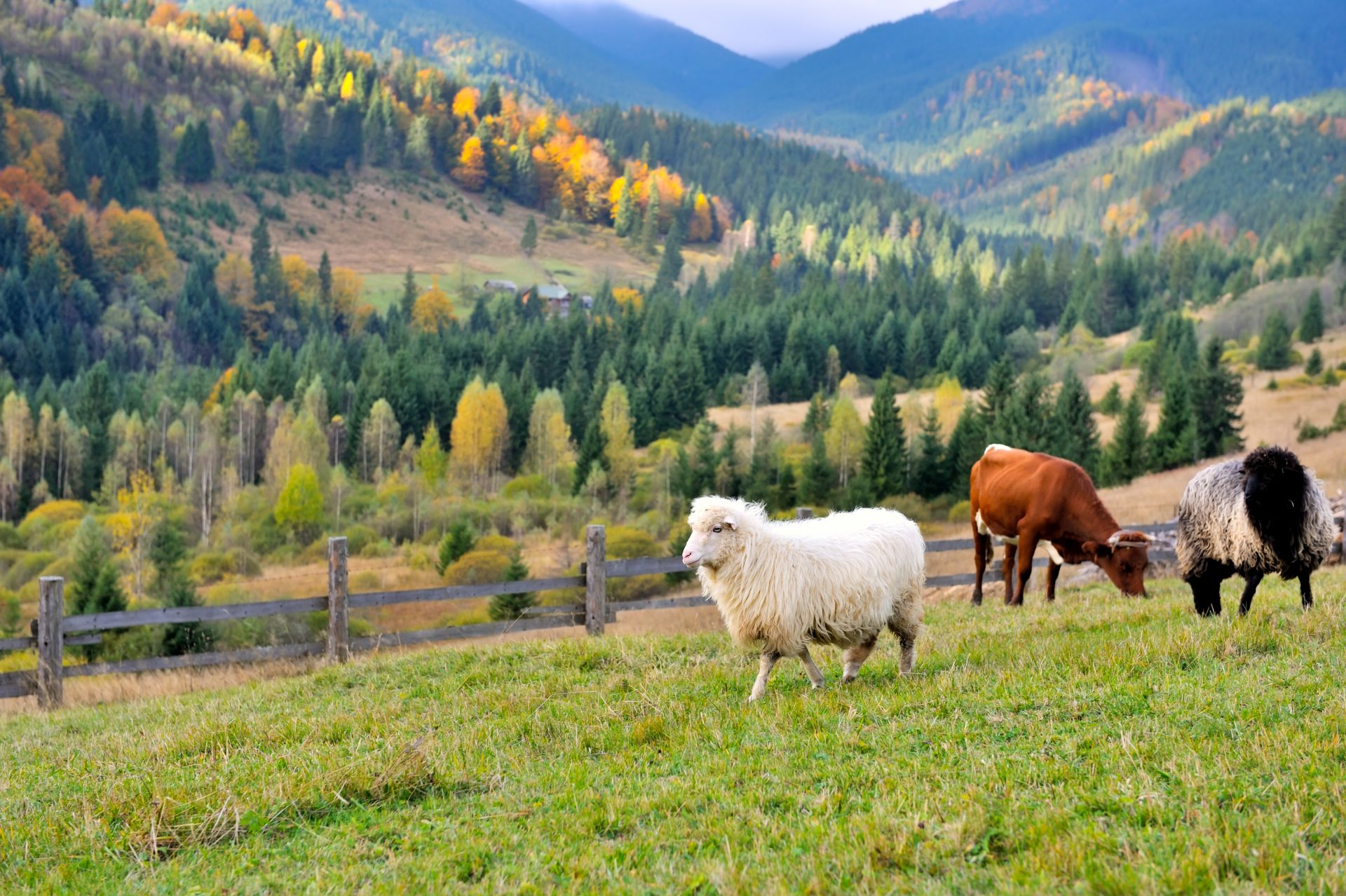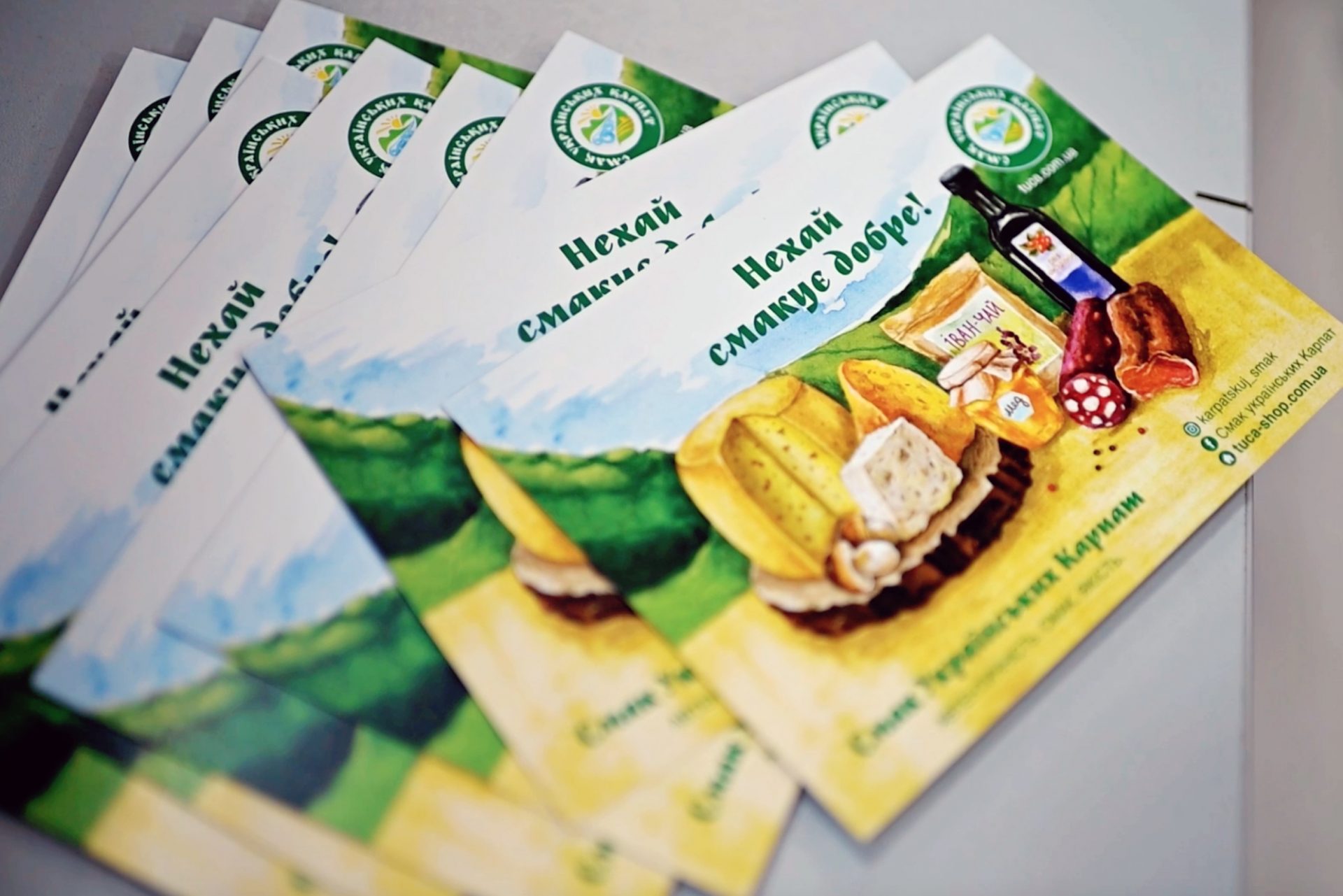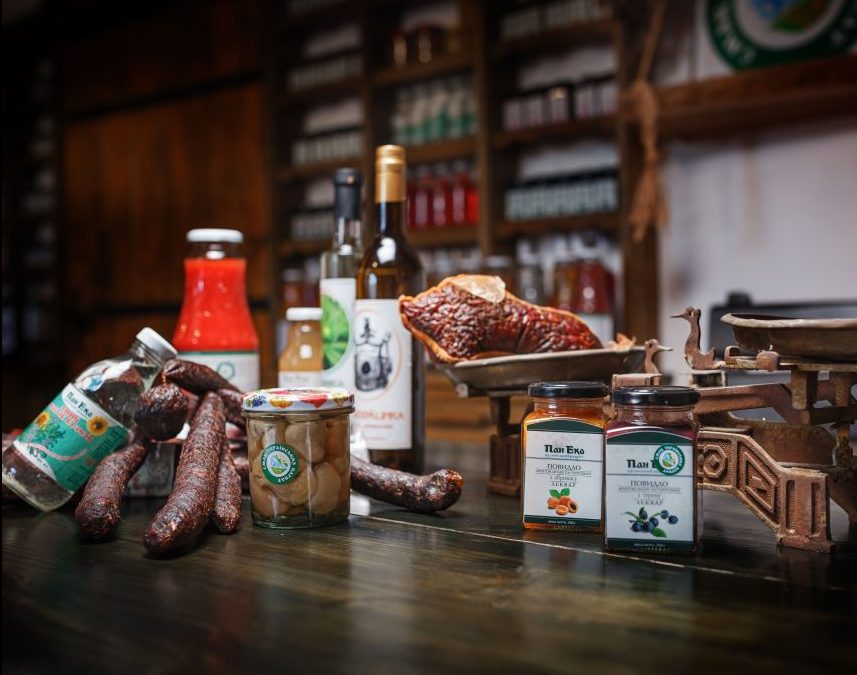- Call us: +38 067 569 86 39
- UKR ENG RUS

Write to us and we'll get in touch with you
From the World’s Best Restaurants to a Carpathian farm: How a Frenchman Started Eco-production in Ukraine and United Ukrainians Around it
A Frenchman, Oreste Del Sol, has been living in Ukraine for 26 years. He has set up an eco-farm Zelenyi Hai (Green Grove) in Zakarpattia in the past decade, where he makes sheep cheese, sausages, and smoked products. Oreste was born in Paris. A graduate of Paris School of Gastronomy, he has worked at the world’s best restaurants and was a maitre d’hotel for France’s prime minister. What made him trade the European capitals for a homestead in the Carpathians and swap fashionable restaurants for a farm? What is the secret to being a successful farmer in Ukraine? Find out in Oreste Del Sol’s exclusive interview for Voice of America.
Alina Holinata-Slota (A. H.-S.) When did you decide to move to Ukraine?
Oreste Del Sol (O. D. S.): When socialists came to power in France, their behaviour annoyed me, so I decided to go live at Longo Mai commune (a network of agricultural cooperatives in Europe – VA). Longo Mai wanted to help Ukraine after the collapse of the Soviet Union: not only financially or in humanitarian aid. We wanted to create something to show that you can have a normal life in this country. I was invited to come here. I first came to Ukraine in 1992. I made the decision to stay in 1994.
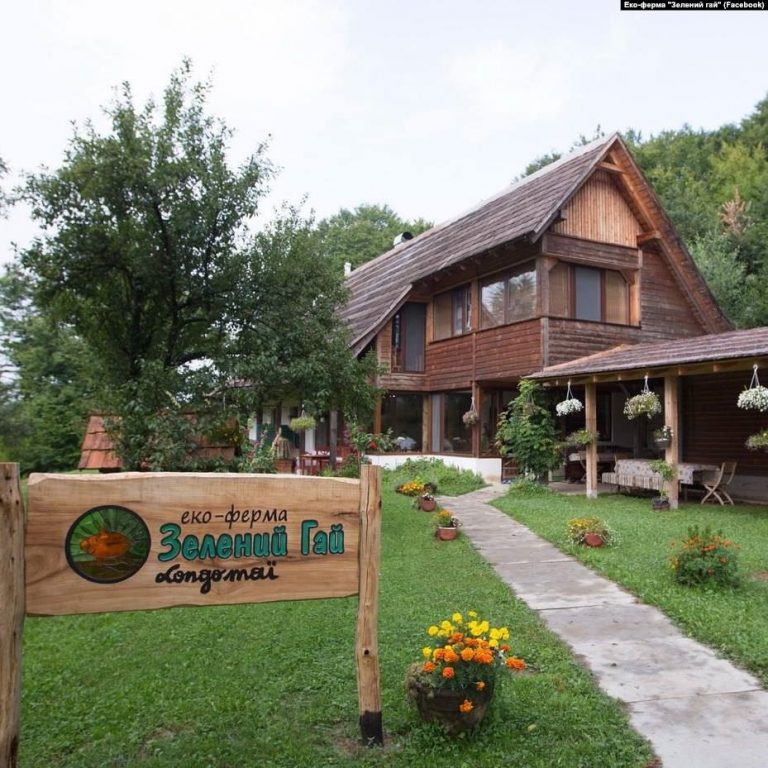
H.-S.:Why the Carpathians?
О. D. S.: Firstly, because my wife is from Zakarpattia. Secondly, I love the mountains, I love nature. In my opinion, Zakarpattia is one of the most ecologically clean areas in Europe. Nature here is unique. I live on a farmstead by the forest – so beautiful.
H.-S.:How did it happen that you’ve traded restaurant business for farming? What made you do it?
О. D. S.: I am all for people being independent at any moment of their life. I don’t like having subordinates, and I don’t like having a boss. Farming means that you make your own products, and it is one of the best ways to become independent.
H.-S.:What was your first project in Ukraine?
О. D. S.: In 1994, we created Selyska Cheese Farm – one of the smallest cheese farms in Ukraine. It was my project for 10 years. We were buying milk from the locals to make a natural product. At the time, we lived in Nyzhnie Selyshche and kept two pigs for our needs.
H.-S.:When did you develop the idea of turning farming into a business?
О. D. S.: Ten years ago I decided to buy a new home with a bigger plot of land. We didn’t have enough land for farming before that, even if we wanted to do it. We now have 3 ha, 20 goats, 50 pigs, 3 cows, and chicken – all this ensures our income.
H.-S.:How did you learn farming?
О. D. S.: Our organization has many specialists. They regularly come here and conduct training. We are now at a stage when we can teach others. I learnt the sausage-making technologies in Austria. As for the cheeses, we learnt a lot here, on-site. You have to be eager to learn; it’s most important. This is what we always tell people.
H.-S.:Has your previous experience working at restaurants helped you in your current work?
О. D. S.: It was a completely different type of work – I created luxury products. What we are doing here is a simple product. It is natural and, yes, not cheap, but it is still affordable. If we come back to my profession, I was taught about sanitary norms and bacteriological issues – I use this knowledge when making our cured meats.
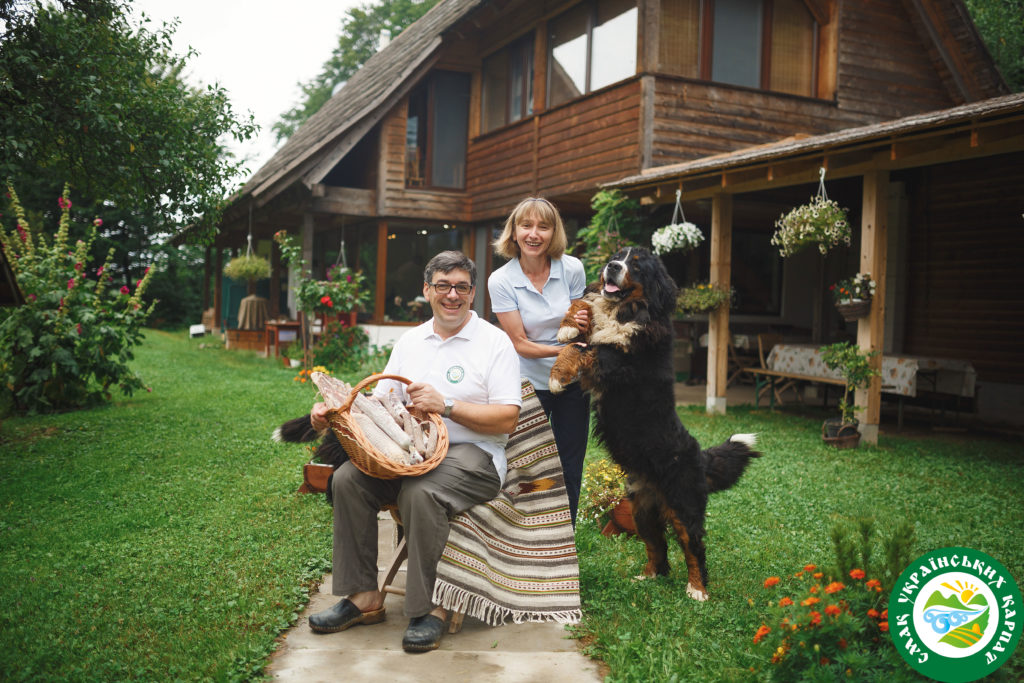
H.-S.:How do you sell your products?
О. D. .: We try to sell more to friends who come to the farm and do less business with retailers. Yet, there are some stores in Odesa, Dnipro, and Lviv where you can buy our products. We don’t make a lot, so sales are not a problem.
H.-S.:Do you have many tourists at your farm?
О. D. S.: May people want to come, but we cannot receive them all. We have everything in one place: our house, the cheese farm, the office, the reception, and the kitchen. We try to show people the production facilities and let them taste the products while telling them what organic products are. People are often unaware, so we explain what it means: we don’t use pesticides, herbicides, and antibiotics. I think it is best when people come to the farm. Here we can tell them about our products, and they can later become our clients.
H.-S.: What are the challenges you face in your life and work?
О. D. S.: Our main concern at the moment is the Svydovets massif, located not far from our home. Oligarchs want to build a gigantic ski resort there, which can result in an environmental catastrophe. The Svydovets massif covers a dozen of protected territories. It is home to many rare animals and plants, the location of virgin forests and glacier lakes. All this can disappear forever tomorrow. I’ve been to many countries in Europe, and I can confidently say that it is a unique place. Our action group is involved in a court case – we’ve won in the trial court, but our opponents have filed an appeal, which will be the next stage. We have vast support in Europe and States – more than 3,500 letters have been sent to the President of Ukraine from Switzerland, Austria, Germany, France, and the US. We are currently collecting signatures for the “Let’s Protect the Natural Carpathians from Urbanization” petition to the President.
You have to be optimistic to live in Ukraine right now. I am an optimist, and I believe that the people here are good, that nature is wonderful. It may be hard at times. But bad roads are not as bad as oligarchs who want to privatize everything… There many agro holdings today, and they don’t understand that my 3 ha farm is a model aimed to show how people lived in Europe and even America long ago; it was common to live on small farms. They don’t understand that I don’t want more land, more work, more products, that I’m not interested in selling to supermarkets – I make the products myself and sell them to people I know who understand them. Food is important, it is a whole philosophy. When you know what you make, you feel confident about your health, and it becomes a source of happiness. When they want to do construction on the banks of such rivers as Tysa, even great optimism is not enough anymore.
H.-S.: What is the secret to your success? What does one need to achieve the same results as you have achieved?
О. D. S.: You can become successful when you have people, land, and public order. Without them, neither a Frenchman nor a Ukrainian can become successful. It has nothing to do with the fact that I come from France and want to live in Ukraine. It is about the fact that you can really live here and have a good life at that. My children could study in France, but they are getting an education here. It is also crucial for me because many people talk about patriotism, yet the children of people’s deputies all study abroad.
I often say that the desire to be independent is most important. When you are a farmer, it is essential not only to grow something but also to process the food and then sell the ready-made product. I see many people who have cows, and the only thing they do is sell milk. And I tell them, “make cheese from your milk; when you make cheese, don’t sell it to the shops, sell it yourself.” These are the three pinnacles: grow something, then process it and then sell the product yourself. Sometimes, it may take more time to sell than to grow or process. You have to be aware of specific technologies, PR, and marketing. I am not the biggest fan of these, but you cannot do without them.
H.-S.: What is your advice for people who want to become farmers but don’t know where to start?
О. D. S.: To become a farmer, you need to have land. Sometimes, people have land and don’t know what to do with it. I was born and have lived in Paris for 25 years, and then I spent two years in London. Maybe, that’s why when I came back to land, I had the desire to work on it. It’s not the same for everyone. When I work, I don’t see it as work. I don’t have rest as my work is rest for me. Some people want to take vacations, weekends off, and travel… When you have cattle and don’t feel happy, farming is not for you. You should love what you do.
H.-S.: In all those years of having your farm and creating a business, what were the most severe challenges you have faced and what helped you tackle them?
О. D. S.: Here in Ukraine, one of the main issues is legislation, which changes very often. Pessimism is another challenge. For one, I am an optimist, but if too many people around you don’t believe, then it becomes hard – you need to convince them that they can try, that if they try hard enough, the result will come. We hoped that the visa-free regime would bring something positive, but people still think they will find a better life in the Czech Republic or Poland. I try to explain to them that it’s better to have less but be surrounded by your family, live with your children.
H.-S.: What are the prospects for farming in Ukraine? Where do you see progress and achievements?
О. D. S.: I’m concerned about holdings. I have a feeling that big farmers will take the best lands, and traditional farming will decline. It’s a problem. We need to unite people. If there’s a network, people can exchange cattle and tools. Doing everything by yourself is much more challenging. Another thing is that teenagers and young people leave the village, they don’t want to stay. But it’s a common problem not just in farming, the same applies to other industries.
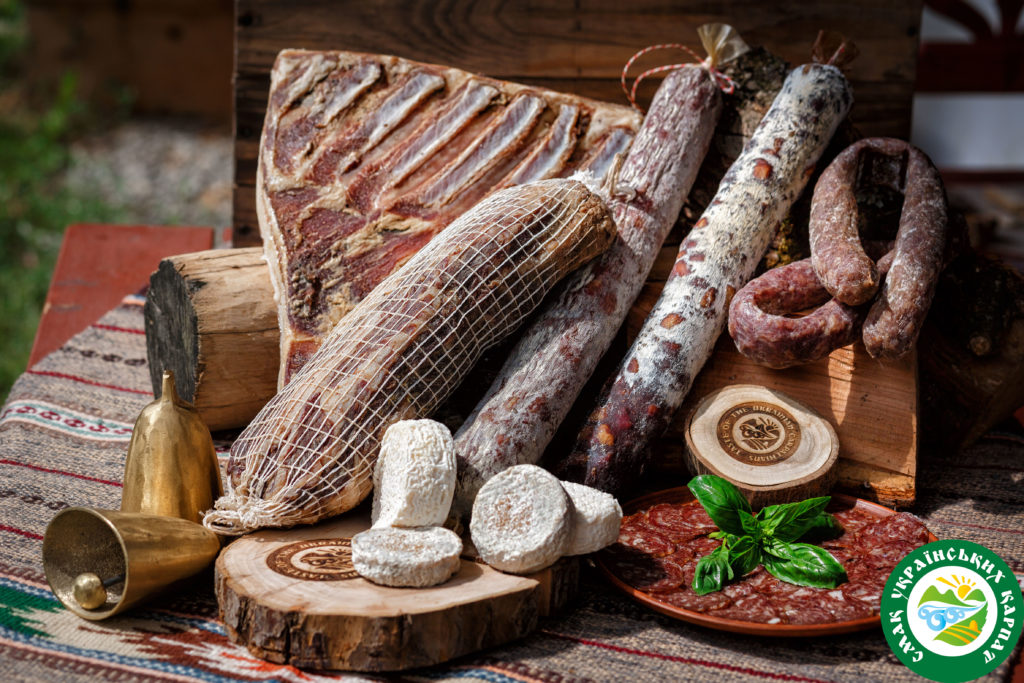
H.-S.: In your opinion, what is the greatest treasure of Ukraine? What is our potential, and how can we unlock it?
О. D. S.: The region where I live has unique nature – water, soil, and forest. Yes, people litter. But I don’t mind litter. Primarily because you can see it. You won’t see litter in Switzerland and Germany, yet birds die there because they use pesticides and herbicides. It doesn’t happen in Ukraine as there’s no extensive farming. This is a real treasure, but people don’t yet know how to use it. Zakarpattia is the area where pesticides are not used.
A year and a half ago, we created the Sheep Shepherds Association of our district. This profession is slowly dying, and I wanted to help. We need movements so that people unite and trust each other. When you feel pessimistic, when you do not believe your neighbour, we have a problem. It’s important to meet and discuss issues. When people see that by being part of a group, they can achieve more, it motivates them to attend future meetings. For instance, we are working towards increasing the price for bryndza, which should encourage youngsters to take up sheep shepherding. It is a traditional profession, the cheese they make is high quality, but the price is seriously behind international standards. Shepherds are often people who lack education – we need to respect them and understand their profession. Then we can do business.
H.-S.: Are you currently working in tourism?
О. D. S.: Five years ago, we created an association of producers from the Carpathians – Taste of the Ukrainian Carpathians. Twenty producers of natural products (tea, honey, cheeses, meat) came together to create a union. Next month we are opening a tasting room for these products in Lviv city centre: at the open-air ethnographic museum, we will be doing presentations of these products for tourists. Low-cost air travel is gaining popularity, and many tourists will be coming to Ukraine from Europe, especially to Lviv, in search of local products. Our idea is to sell not only the products but also the region. Each country in Europe has a regional specialty identified with a specific region. Tourists coming to Lviv from Poland or Hungary will know that the Carpathians have such a product.
H.-S.: What are the principles of work behind this association?
О. D. S.: We are now meeting quite frequently as the presentation at the museum is approaching. The objective is to unite people around an idea, which is not easy to do as not everyone understands the essence. It is hard to explain that we do this to give people a platform, that there will be no financial assistance from sponsors, no grants, no money or equipment. We have been searching for people for years – it is not a simple task to find those who would understand the idea without expecting any sort of support, financial or material.
H.-S.: How can the state and public help local producers?
О. D. S.: Our Prime-Minister suggests subsidies. I don’t support subsidies. Farmers don’t need subsidies; what they need is access to land, the ability to rent land. We need to privatize land, have rent paid, and have a non-regulated pricing market. The problem with subsidies is quite often about control – when the state extends assistance, they do it to know which products are made in the largest quantities. I’m against this approach as I want to be independent. If someone gives you money to test you, you become dependent. If you are given subsidies, someone is affecting your decisions. For instance, you are subsidized for corn growing, and you grow cereals. So, you decide to switch to corn growing, and it’s not right. You have the final say – study the market, choose what you like, match it to your knowledge and create your own separate market.
If, for instance, everybody on the market is making apple juice and it makes no sense to sell it, then why produce it. What I mean is that the market is self-regulating, and with the subsidies everything is artificial. Subsidies should be used to help those who cannot work independently, i.e., people with special needs. Farmers should be given a chance to make money, and they will decide for themselves what they will be doing exactly.
H.-S.: What are your plans and objectives for the future? What do you want for yourself and your business?
О. D. S.: I don’t want Svydovets to become a development site. Anyone who has been there understands how important it is. The Carpathians are about mushrooms, berries, forest, lakes, and wildlife. This wildlife is important not only for Ukraine but also for Europe and the world. There is no planet B.
Voice of America, journalist Alina Holinata
We are expressing our gratitude to the author and Voice of America.
Article material:
https://ukrainian.voanews.com/a/eko-ferma-zelenyi-hai-orest-del-sol-zakarpattia/4335612.html
